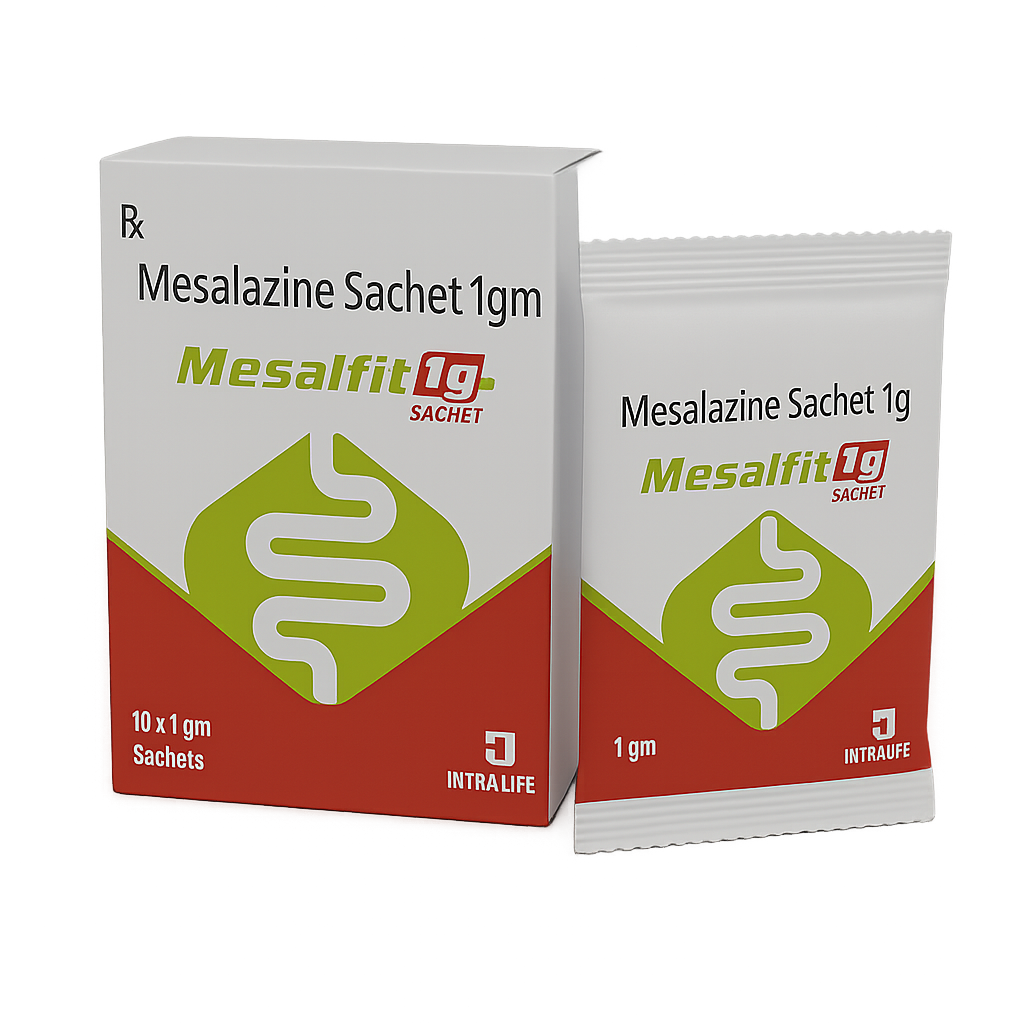
MESALFIT SACHET Sachet
MRP: 2
Packaging: 10 x 1 gm
Pack Type: sachet
Composition:
MESALAZINE 1gm (PR granules)
Indication:
used for the treatment and maintenance of mild to moderate ulcerative colitis and Crohn’s disease. It helps reduce inflammation in the colon by inhibiting the production of inflammatory chemicals, providing relief from symptoms like diarrhea, rectal bleeding, and abdominal pain.
Description:
Mesalazine (also known as 5-aminosalicylic acid or 5-ASA) 1g PR granules are a gastro-resistant, prolonged-release formulation used in the treatment and maintenance of remission of ulcerative colitis and other inflammatory bowel diseases (IBD). These granules release the active drug locally in the colon to exert anti-inflammatory action.
Mesalazine works by inhibiting prostaglandin and leukotriene synthesis, reducing inflammation of the colonic mucosa. The PR granules provide consistent drug release throughout the gastrointestinal tract, optimizing therapeutic levels at the site of inflammation.
Tags:
- Prolonged-release ensures sustained drug delivery in the colon
- Reduces symptoms like rectal bleeding, abdominal pain, and diarrhea
- Helps maintain remission in chronic IBD
- Minimal systemic absorption → fewer side effects
- Well-tolerated in long-term use
Usage Information
Dosage
Induction of remission (active phase): 1–2 grams once or twice daily or as prescribed Maintenance of remission: Typically 1 gram once daily Granules should be taken whole, not chewed or crushed. Administer with or without food, preferably at the same time each day.
Side Effects
Common: Abdominal pain Flatulence or bloating Headache Nausea Rare but serious: Nephrotoxicity (monitor renal function) Blood dyscrasias Pancreatitis Hypersensitivity reactions including rash or fever
Contraindications
Hypersensitivity to salicylates or Mesalazine Severe renal or hepatic impairment History of mesalazine-induced myocarditis or pericarditis
